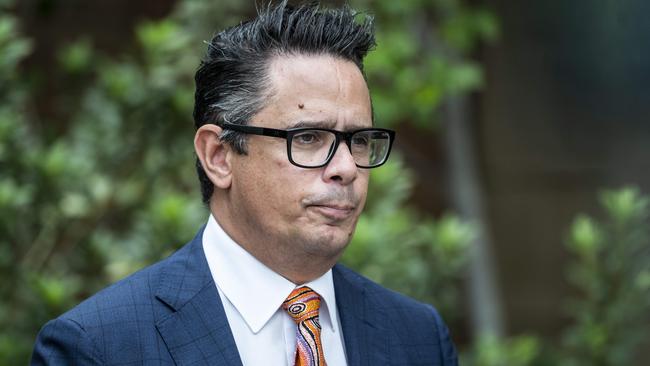Nothing to fear in new heritage act, Wyatt says
Amid ‘hysteria’ over upcoming changes, Ben Wyatt says the new rules will reduce compliance needs for minor works

One of the key architects of Western Australia’s contentious Aboriginal heritage laws says the new rules will not capture activities previously untouched by the old act.
Ben Wyatt was Aboriginal affairs minister when the McGowan government began overhauling the state’s 50-year-old Aboriginal Heritage Act, and now sits on the board of Rio Tinto and Woodside Energy.
Rio Tinto’s detonation of the Juukan Gorge rockshelters was carried out with Section 18 approval under the previous act and added further impetus to the reforms, while Woodside’s first LNG plant was built over part of the rock art-rich Burrup Peninsula in the 1980s.
Speaking on ABC Radio on Tuesday, Mr Wyatt said the new rules would give more clarity on what matters needed approval, remove the need for special approvals on minor heritage issues, and would finally require Aboriginal people to be spoken with in the event sites had to be disturbed.
Under the old act, he said, whether repainting a netball court built on a heritage site or destroying a significant site in the Kimberley, the same Section 18 process had to be followed. That has now been replaced by a tiered system with fewer hurdles for minor activities.
“What I quickly worked out as minister is the vast majority of section 18 approvals to impact on a site are for low-level activity (such as) putting in a water pipe in or repairing a road, or fixing a retaining wall on the Swan River,” he said.
“The new law seeks to abolish that process completely, to make it much more efficient for those people and organisations that are really having no or very small impact on any form of site.”
The WA opposition has queried whether the new rules could restrict groups from removing rubbish from waterways or stop children from building sandcastles (the government says “lifestyle activities” are exempt), while other groups have raised concerns about activities such as installing new fence lines on farms or bulldozing new firebreaks.
Mr Wyatt said the debate over the new regulations – which come into effect on July 1 – had become “a bit hysterical”.
“You aren’t suddenly covered by something new … If you’re going to do something that significantly impacts an important site, you’ve got to speak to an Aboriginal person,” he said.
“For the first time in WA, that is now embedded in the legislation.”




To join the conversation, please log in. Don't have an account? Register
Join the conversation, you are commenting as Logout